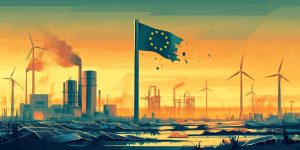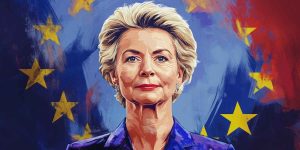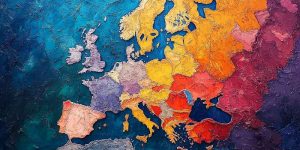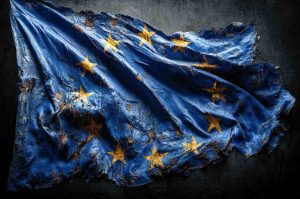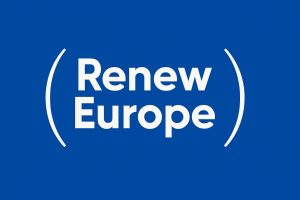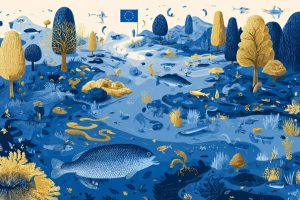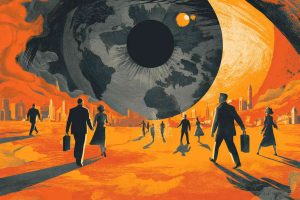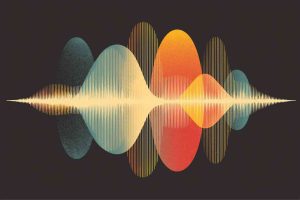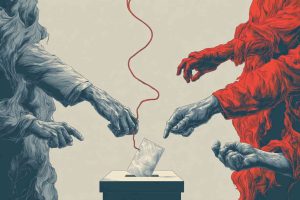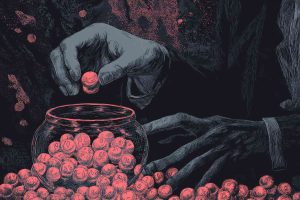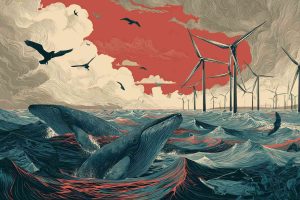Nexit: why leaving the European Union would serve the Netherlands best
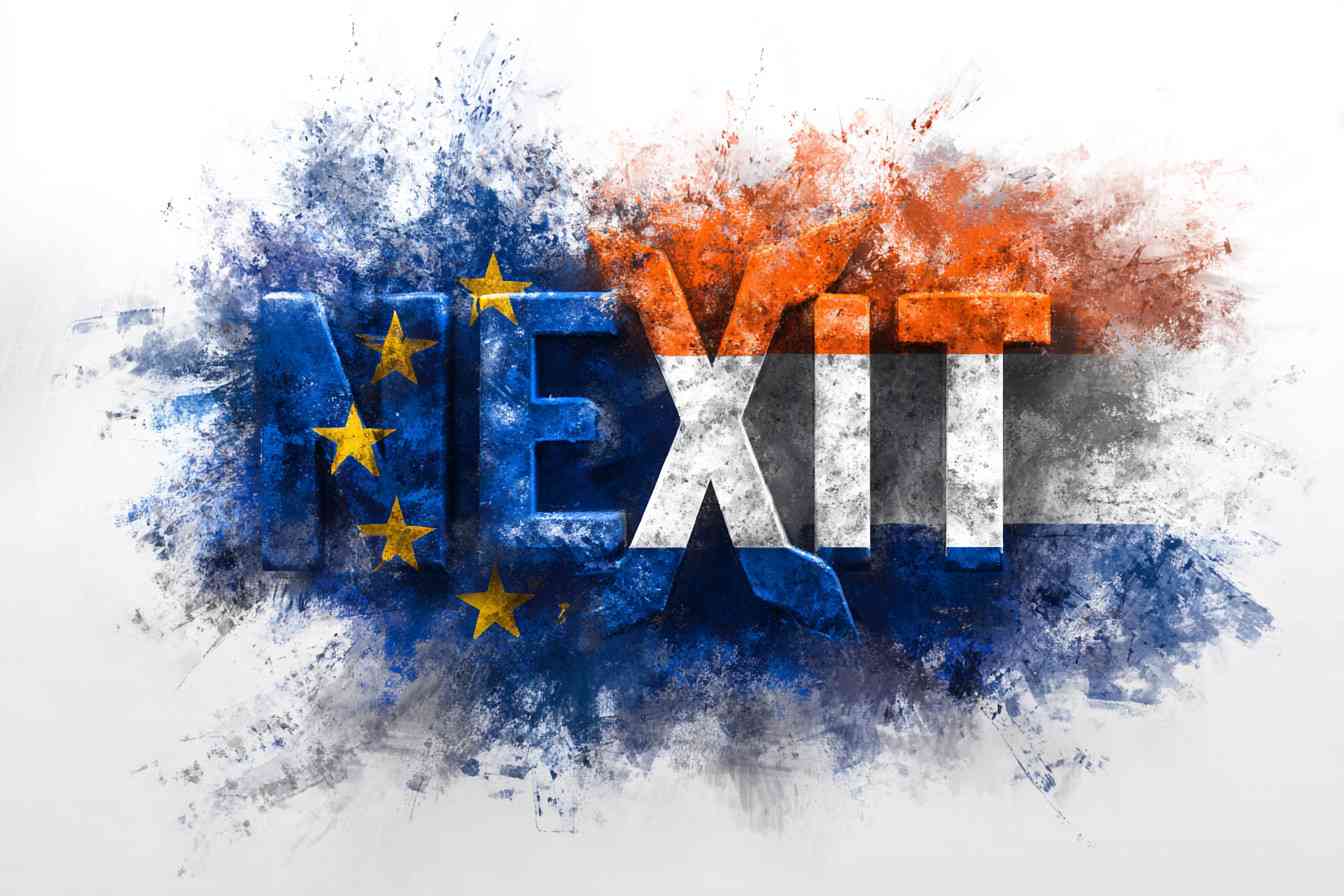
A small nation in a large political machine
The Netherlands, once a proud maritime power and one of Europe’s most prosperous nations, has over the decades become deeply entangled in the European Union’s bureaucratic machinery. What began as a pragmatic cooperation to rebuild Europe and facilitate trade after World War II has evolved into an ideological and political superstructure that reaches into nearly every aspect of national life.
The idea of a “Nexit”, a Dutch exit from the EU, is often ridiculed by the establishment as naïve or extreme. Yet as Brussels centralizes more authority and national sovereignty erodes, the question is no longer whether the Netherlands can afford to leave, but whether it can afford to stay. To answer that, one must remember that the EU is not Europe. Europe is a continent, a shared civilization of diverse cultures and nations. The European Union is a political project, one that has drifted far from its original purpose and increasingly acts against the interests of those who built it.
The EEC: cooperation that worked
When the European Economic Community (EEC, or EEG in Dutch) was created in 1957, it was designed as a trade and customs agreement between sovereign states. The idea was to reduce tariffs, promote economic cooperation, and prevent another devastating war through shared prosperity. It was a reasonable, limited arrangement, pragmatic and beneficial.
The Netherlands thrived under the EEC framework. As a small, outward-looking economy, it benefited from stable trade relations without surrendering control over its laws, borders, or currency. The EEC was about economics, not ideology.
But over time, the EEC was transformed into something entirely different. The Maastricht Treaty of 1992 created the European Union, expanding the scope from trade to politics, social engineering, and supranational governance. What had once been a partnership of independent nations became a centralizing political union that sought to standardize laws, taxation, and even values.
A Nexit would not mean abandoning cooperation with European countries. It would mean returning to the original spirit of the EEC, free trade and collaboration without political subordination.
Economic dependence and financial burden
Today, the Netherlands is a net payer to the European Union, contributing billions more each year than it receives. In 2023, Dutch taxpayers paid roughly €10 billion more into the EU budget than they got back (EU budget 2023, European Commission). That money flows primarily to southern and eastern member states through cohesion funds and agricultural subsidies.
Supporters of EU membership claim these costs are justified because the single market boosts trade. Yet Dutch trade long predates the EU and its predecessors. The Netherlands has been a commercial power since the seventeenth century, when Amsterdam was the financial capital of the world. Global trade today operates under the World Trade Organization’s framework, which would still apply after a Nexit (World Trade Statistical Review 2024, WTO).
Moreover, many of the EU’s so-called benefits come with suffocating regulation. Small and medium-sized Dutch businesses, the backbone of the economy, are increasingly burdened by EU directives on labor, energy, and environmental policy. A Nexit would allow the Netherlands to create simpler, nationally tailored regulations that protect innovation and competitiveness.
The EU’s “Green Deal, ” for instance, imposes strict emission targets that threaten the viability of agriculture, industry, and logistics. Dutch farmers, among the most efficient and sustainable in the world, are being forced to reduce livestock and even sell land under Brussels-imposed nitrogen policies (Fit for 55, European Commission). Such measures may serve abstract EU climate goals but devastate real livelihoods.
With a Nexit, the Netherlands could balance environmental responsibility with economic realism, free from the ideological dictates of the European Commission.
The euro: a currency that does not fit
When the Netherlands joined the euro, it exchanged a strong, independent guilder for a shared currency designed for political integration rather than economic logic. The euro has since created a deep imbalance between northern and southern Europe.
The European Central Bank (ECB) keeps interest rates artificially low to sustain indebted southern economies such as Italy and Greece. This policy fuels inflation and housing bubbles in northern countries like the Netherlands, where productivity is higher and fiscal discipline stronger (Monetary policy and inequality in the euro area, ECB).
Dutch citizens now face skyrocketing living costs, inflated house prices, and dwindling purchasing power, outcomes directly linked to ECB policy. Meanwhile, the Netherlands has little say in these decisions.
An independent Dutch currency would reflect the true strength of the national economy, allowing more responsible monetary policy. A Nexit would restore the ability to set interest rates that actually fit domestic conditions, rather than serving the political cohesion of the eurozone.
The illusion of democracy
The European Union presents itself as a democratic structure, but in reality, its core institutions are profoundly undemocratic. The European Commission, the body that drafts and enforces most EU legislation, is unelected. The European Parliament cannot initiate laws on its own, while national parliaments have little influence over EU decisions.
In the Netherlands, approximately 70 percent of new legislation stems from EU directives (De Europese wetgevingsketen in Nederland, Raad van State). Yet Dutch citizens never directly voted for these laws. Even when the Netherlands rejected the European Constitution in the 2005 referendum, Brussels simply repackaged it as the Lisbon Treaty and pushed it through anyway.
This democratic deficit is not a design flaw, it is the system’s foundation. The EU’s architects always intended to create a technocratic structure insulated from popular pressure (The Great Deception, Christopher Booker & Richard North).
A Nexit would restore genuine democracy by ensuring that laws are made by Dutch representatives accountable to the Dutch people, not to unelected bureaucrats in Brussels.
Migration and border control
EU membership requires participation in the Schengen system of open borders and adherence to EU migration policies. While the principle of free movement sounds appealing, it has resulted in uncontrolled migration, labor competition, and a housing crisis in the Netherlands.
The EU’s failure to control its external borders since the 2015 migrant crisis has brought millions into Europe, often without sufficient integration capacity or security screening (Migration and migrant population statistics, Eurostat). Dutch municipalities struggle to provide housing and services, while crime and social tensions rise.
A Nexit would give the Netherlands back its sovereignty over migration and asylum policy, enabling the government to decide who may enter, reside, or work in the country. Border control is not an act of isolation; it is a core function of a sovereign state.
Agriculture: the price of EU ideology
The Netherlands’ farmers are among the most productive and innovative in the world. Yet EU environmental directives and the Common Agricultural Policy (CAP) have placed them under unprecedented pressure.
Policies such as the “Nature Restoration Law” and nitrogen emission limits, largely dictated by Brussels, threaten to destroy family farms and rural communities. The EU’s push for rewilding and emission quotas has little regard for national realities (Common Agricultural Policy: The Future of Food and Farming, European Commission).
These measures are not simply about ecology; they are part of a broader ideological agenda to reshape land use and economic priorities under the EU’s Green Deal. Dutch farmers have become collateral damage in a technocratic experiment.
A Nexit would allow the Netherlands to pursue genuine environmental stewardship without sacrificing the agricultural sector that feeds both its own people and much of Europe.
The EU is not Europe
The greatest misconception in modern politics is that opposing the EU means opposing Europe. This is false and deliberately misleading. Europe is a geographical and cultural entity, a continent of sovereign nations, languages, and traditions stretching from Lisbon to Moscow.
The European Union, by contrast, is a political construct born in the second half of the twentieth century, driven by elites who sought to integrate the continent under a single bureaucratic system. The EU does not embody Europe; it attempts to replace it.
True European cooperation does not require the erosion of national sovereignty. Trade, diplomacy, and mutual respect can exist without a supranational authority. Switzerland, Norway, and Iceland are all European, yet not members of the EU. They demonstrate that independence and cooperation are perfectly compatible.
The Netherlands can be both proudly European and fully sovereign. A Nexit would reaffirm that distinction.
Trade after Nexit: cooperation without submission
Opponents of Nexit warn that leaving the EU would devastate trade, but this claim ignores economic reality. Non-EU European countries such as Norway and Switzerland maintain extensive trade with the Union through bilateral agreements while retaining control over domestic policy.
The Netherlands’ economy is globally oriented, with major partners beyond Europe, the United States, China, and the United Kingdom, among others. A post-Nexit Netherlands could negotiate independent trade deals under WTO rules, pursuing markets with higher growth potential (World Economic Outlook 2024, IMF).
The Netherlands’ strategic location, ports, and logistics expertise would remain assets regardless of EU membership. Freedom from Brussels’ bureaucracy would likely make the country even more attractive for global investment.
Cultural identity and ideological conformity
The European Union promotes an ideology of “ever closer union, ” which effectively means cultural homogenization. Through media subsidies, education programs, and EU-funded NGOs, it promotes a particular worldview, socially progressive, bureaucratically managed, and detached from national traditions (Cultural Policy in the European Union, KEA European Affairs).
This agenda has little in common with the Dutch heritage of independence, tolerance, and civic responsibility. EU policymaking now influences issues as intimate as family law, gender policy, and education, areas that should remain under national jurisdiction.
A Nexit would protect the Netherlands’ right to preserve its cultural identity and moral autonomy, ensuring that Dutch values are defined in The Hague, not in Brussels.
The political class and the myth of inevitability
The greatest obstacle to a Nexit is not feasibility but political will. The Dutch establishment, politicians, bureaucrats, academics, and media figures, is deeply intertwined with the EU system. Many owe their careers to Brussels’ networks of influence and funding (The Brussels Effect, Anu Bradford).
For decades, the public has been told that EU membership is inevitable, that leaving would mean chaos and isolation. But that narrative serves those who benefit from the status quo, not ordinary citizens. The success of Brexit in restoring British sovereignty, despite short-term turbulence, proves that departure is possible when guided by determination and competence.
If the Netherlands held an honest referendum today, one untainted by propaganda or fearmongering, a significant portion of the population would likely vote to reconsider EU membership. The Dutch people have never been afraid of independence; they built an empire from a floodplain.
A moral and democratic imperative
At its core, the argument for Nexit is not only economic or administrative but moral. The EU has become a structure where power is exercised without accountability, and where ideology trumps common sense. It is a system that demands conformity, punishes dissent, and governs through bureaucratic decree rather than democratic consent.
Remaining within it means accepting a future of declining sovereignty, rising costs, and cultural erosion. Leaving it means reclaiming responsibility for one’s own destiny, the very essence of democracy.
Conclusion: a return to independence
The European Economic Community was a success because it respected national sovereignty and focused on practical cooperation. The European Union is a failure because it replaced that cooperation with coercion.
A Nexit would not mean turning away from Europe; it would mean returning to it, to a Europe of free nations, voluntary cooperation, and mutual respect. The Netherlands could once again become a model of pragmatic independence, globally connected but self-governing.
For a nation that once tamed the seas, reclaimed land from water, and built prosperity through ingenuity, reclaiming political sovereignty is not too much to ask. It is the natural next step.
The EU is not Europe. The Netherlands is Europe, and it should remain free.

